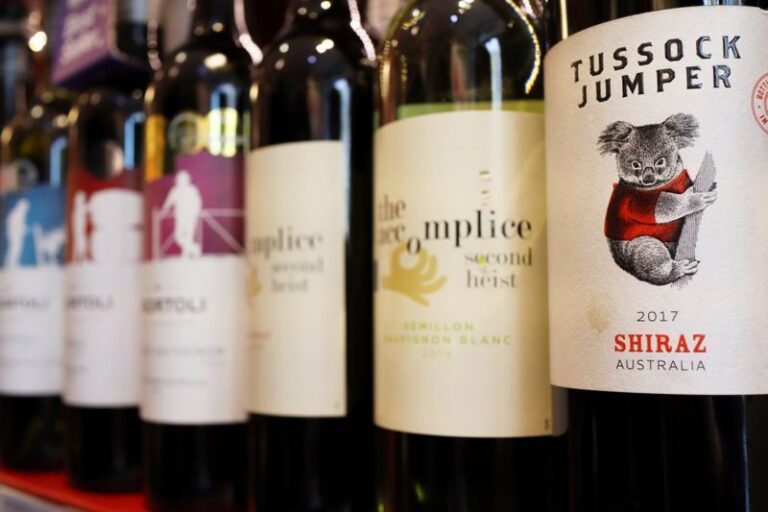
(Reuters) – Australia’s ties with top trade partner China soured in 2018 when it became the first country to publicly ban China’s Huawei from its 5G network, and worsened after Canberra called for an enquiry into the origins of the coronavirus.
Tit-for-tat diplomatic reprisals have since followed, including raids on the homes of Chinese journalists in Australia, evacuation of some Australian journalists from China and a raft of trade measures imposed by China on Australian exports.
China is by far Australia’s top overall export market, worth $104 billion in 2019, according to the International Monetary Fund (IMF), so a lasting severing of trade ties could damage the Australian economy.
Australian shipments of beef, barley, coal, cotton and wine worth billions of dollars have been the most impacted by recent measures, and China has been able to find alternative supplies easily.
For a graphic on Australia exports of key commodities to China:
Iron ore – Australia’s top export and a critical ingredient for China’s massive steel sector – has been largely spared so far from any crossfire, as has Australian LNG. China depends on Australia for more than 60% of its iron ore imports.
Here is a timeline of how commodities markets have been impacted by the mounting tensions between the countries:
DECEMBER 2020
China’s iron ore futures breached 1,000 yuan a tonne for the first time over supply concerns. “It is wishful thinking that iron ore could be an exception in ongoing China-Australia trade rows,” Global Times, a tabloid backed by China’s ruling Communist Party, suggested. However, some analysts believe that Australian ore getting embroiled in the trade war is overstated.
China beef imports growth to slow in 2021 on lower Australian supply, according to Rabobank.
China imposes temporary anti-subsidy measures on Australian wine imports.
Australia scrambles to find cotton customers from other Asian countries such as Vietnam and Thailand as its largest customer, China, stopped buying Australian supplies.
Australian wheat exporters shy away from striking sales deals with Chinese buyers amid escalating trade tensions.
NOVEMBER 2020
Australia said it was “extremely disappointed” after China imposed temporary anti-dumping measures on Australian wine imports from Nov. 28.
China has found coal imports failed to meet environmental standards amid stalled Australian shipments. ]
Australian coal arrivals to China are expected to slow in the near future and the share of China’s coal imports from Australia fell to 26% in October.
Meanwhile, China cut imports of Australian copper concentrate by more than half in October.
Australia’s Woodside Petroleum shelved talks to sell stakes in a gas field and liquefied natural gas (LNG) project to Chinese firms because of the diplomatic row.
China rejects Australia’s appeal to scrap anti-dumping and anti-subsidy duties totalling 80.5% on its barley exports.
Beijing banned barley shipments from Australia-based grain exporter Emerald Grain, owned by Japan’s Sumitomo Corp.
Australia stopped rock lobster shipments to top market China, after Beijing imposed new live seafood inspections that include checks for traces of minerals and metals.
China bans Australian timber after pests found from the Victoria state. Earlier, China’s Foreign Ministry said customs repeatedly found biohazards in Australian timber after media reports that Beijing had halted timber imports from Australia’s northeastern Queensland state.
China’s Foreign Ministry said reduced imports of Australian products like wine, coal and sugar were the result of buyers’ own decisions, after media reports stated that Beijing had warned importers to stop buying a range of Australian goods.
China is expected to block imports of sugar, red wine, lobster, barley, coal and copper ore and concentrates from Australia, according to the media reports.
OCTOBER 2020
Australia investigates reports that China has verbally instructed buyers to avoid Australian coal supplies.
China has ordered cotton mills to stop buying Australian supplies or face the risk of a tariff of 40%. China is the biggest buyer of Australian cotton, with the trade worth about A$900 million ($637 million) during the 2018/19 crop year.
AUGUST 31/SEPTEMBER 2020
China suspends barley imports from Australia’s largest grain exporter CBH Grain after pests were found, and orders stricter inspections of Australian wheat and barley.
Australia is the biggest barley supplier to China, exporting about A$1.5 billion to A$2 billion worth a year, which is more than half its exports.
AUGUST 2020
China, the top export market for Australian wine, launches anti-dumping and anti-subsidy probes on some Australian wines.
MAY 2020
China hits Australian barley with anti-dumping and anti-subsidy duties totalling 80.5% from May 19, with the duties expected to last five years.
It also halts beef imports from four of Australia’s largest meat processors.
FEBRUARY 2019
China’s northern port of Dalian bans imports of Australian coal and caps overall coal imports from all sources to the end of 2019 at 12 million tonnes.






